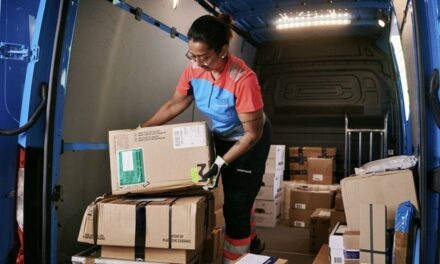
PostNord: Swedish E-retailers are experiencing increasing competition from foreign players

PostNord‘s E-barometer shows that the e-commerce year 2024 is off to a positive start, as e-commerce sales growth increased by one percent compared to the corresponding period in 2023. Pharmacies and groceries increased the most. On the other hand, builders’ merchants decreased, as did Sports & Leisure.
2023 was the year marked by great geopolitical and economic turmoil, which meant that consumers closed their wallets and e-retailers held their breath.
- Inflation is now approaching the Riksbank’s target. The first interest rate cut has been implemented, which gives indebted Swedes and companies more room for consumption and investment. The increase in e-commerce this quarter is a reaction to falling interest rates and inflation, but it is too early to talk about a turnaround and full recovery for the industry,” says Marie Rudolfsson, Head of Business Area Parcels at PostNord Sweden.
Industries that increased e-commerce sales in the first quarter:
- Apotek, +14 procent
- Dagligwarr +4%
- Clothing & footwear +2 percent
The two industries that have the toughest time are Sports & Leisure, which is down ten percent, and the construction trade, which is down 15 percent.
A trend break in international trade is that China is now overtaking Germany as the first choice for e-commerce from abroad.
- Swedish E-retailers are experiencing increasing competition from foreign players. Six out of ten Swedish e-retailers feel that price is the main competitive advantage for foreign players. If we ask consumers, it is only those who buy from China who state the price as the main reason for buying abroad,” says Marie Rudolfsson.
The e-barometer’s Q1 report 2024 also covers circular e-commerce in the increasing second-hand market, sustainability and international trade.
Second hand between private individuals is growing rapidly, while only three percent of consumers have bought second-hand goods online from a traditional company. We therefore ask the e-retailers why they don’t offer second hand? Logistical difficulties are a large part of the explanation, while half of the e-retailers answer that the product is not suitable for circular e-commerce, such as beauty products.
There are several new features in this year’s report. The section on circular e-commerce has been broadened and now includes more focus on B2C and highlights the importance of repairs, rentals and other forms of reuse. The sustainability chapter has been expanded with a section on packaging.
The e-barometer is based on statistics from e-retailers and consumers. The report, which has been published every year since 2006, is available through the link below:
https://www.postnord.se/foretag/foretagslosningar/e-handel/e-barometern/










